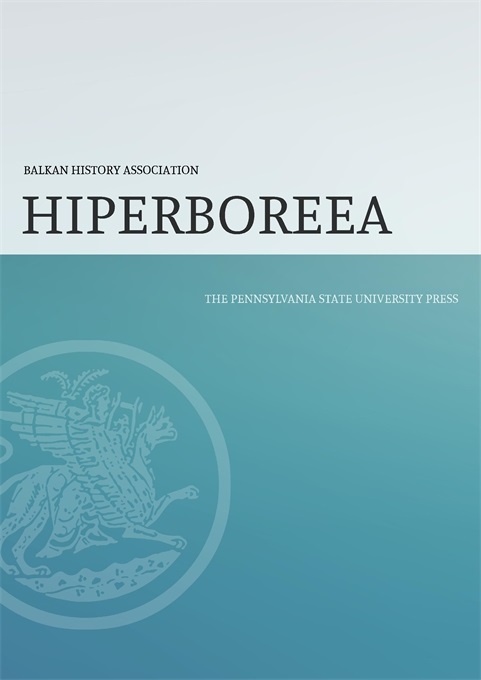Georgia Xanthaki-Karamanou’s book, Dionysiac Dialogues: Euripides’ Bacchae, Aeschylus, and Christus Patiens, is a masterful and insightful exploration of the complex and multifaceted world of Dionysus in ancient Greek tragedy. In this meticulously researched work, Xanthaki-Karamanou examines the interplay and the intricate connections between seemingly disparate works: Euripides’ Bacchae, Aeschylus’ fragmentary Dionysiac plays, and the Christian text Christus Patiens. Her analysis unveils the pivotal role of Dionysus and the rich tapestry of religious and cultural dimensions associated with this enigmatic deity in ancient Greek poetry. Besides that, this book delves deep into the rich tapestry of ancient Greek drama and its influence on later religious and philosophical thought.
Xanthaki-Karamanou’s book is divided into two well-structured parts: the reception of Aeschylus’ Dionysiac plays in Bacchae and the refiguration of the latter in the Byzantine drama Christus Patiens. In both sections the common denominator is Euripides’ Bacchae, which is approached as a receiving text in the first unit and as a source text in the second. After the introduction, where the author presents the aims of her study according to a systematic approach to historical, philological and mythographical data, Xanthaki-Karamanou in the first part refers to the Dionysiac Plays of Aeschylus (the Lycurgeia and the so-called Theban Tetralogy) and Euripides’ Bacchae. In the second part the author refers to two different texts: Bacchae and Christus Patiens, so as to highlight the transplantation of Bacchae into Byzantium, given that Bacchae provides a valuable exemplum for aspects of dramatic technique, plot-patterns, that also exist in a similar way in Christus Patiens. The meticulous research and analysis presented in the book are complemented by four Appendices, a rich and useful Bibliography, and finally the Indices.
Overall, this book offers an illuminating journey through the history and culture of Dionysus, revealing how this god is presented in distinct works and how the pagan play was transformed to bring forward new pillars of thought and innovative values in different cultural and ideological contexts. Xanthaki-Karamanou unravels the intricate web of influences that Dionysus exerts on the characters’ actions and reactions, providing readers with a profound understanding of the god’s role in shaping their destinies. Her analysis goes beyond surface-level comparisons, delving deep into the nuances of each work to reveal their unique perspectives on human nature, religion, and spirituality. She also employs a comprehensive methodological approach, drawing from linguistics, literary criticism, religious studies, and social history, shedding new light on the multifaceted nature of Dionysus as portrayed in these ancient works. It is apparent that Xanthaki-Karamanou’s careful and thorough examination of these texts demonstrates her commitment to rigorous scholarship.
Additionally, Xanthaki-Karamanou meticulously examines the symbolic importance of madness and ecstasy in the context of ancient Greek society, offering fresh interpretations of these themes within the texts. Her scholarship highlights the spiritual dimension of the religious content embedded in these works, making a compelling case for their enduring relevance. It is also noteworthy that through Xanthaki-Karamanou’s expert lens, these themes are not just historical artifacts but mirrors reflecting universal human experiences and enduring questions about faith and the human condition. By providing rich historical and cultural context, she ensures that readers can fully appreciate the significance of these dialogues, even if they are new to the world of ancient literature.
In conclusion, Georgia Xanthaki-Karamanou’s Dionysiac Dialogues: Euripides’ Bacchae, Aeschylus, and Christus Patiens is a magnum opus that elevates our understanding of ancient Greek literature to new heights. Her commendable scholarship, comprehensive methodology, captivating prose, and ability to synthesize diverse perspectives is a testament and breathe life into these ancient dialogues which make this book an essential read for scholars, students of religion, and anyone not only with a passion for thought-provoking literature but also with interest for ancient Greek tragedy, mythology, and religion. This extended review merely scratches the surface of the book’s depth and richness, leaving readers eager to embark on their own transformative journey through the Dionysiac dialogues. It is obvious that this book not only deepens our understanding of these ancient texts but also invites us to engage in timeless questions about the human spirit and the divine. In an era where interdisciplinary research is increasingly valued, Xanthaki-Karamanou’s research stands as a shining example of how a multifaceted approach can illuminate the rich tapestry of ancient literature and culture, making the book a valuable contribution to multiple fields of study.
Dimitra Moniou, Assistant Professor of Byzantine Literature, University of Peloponnese, Kalamata, Greece


